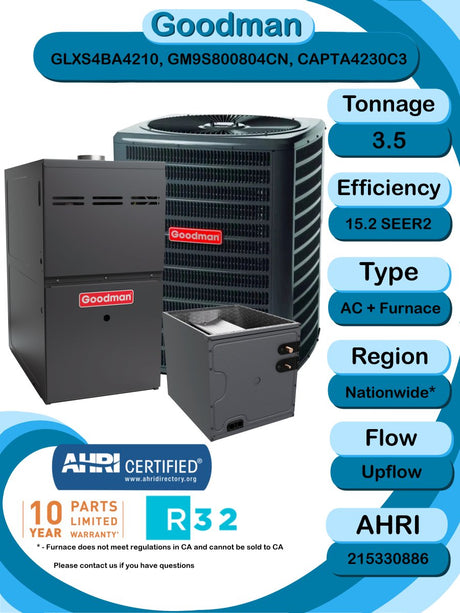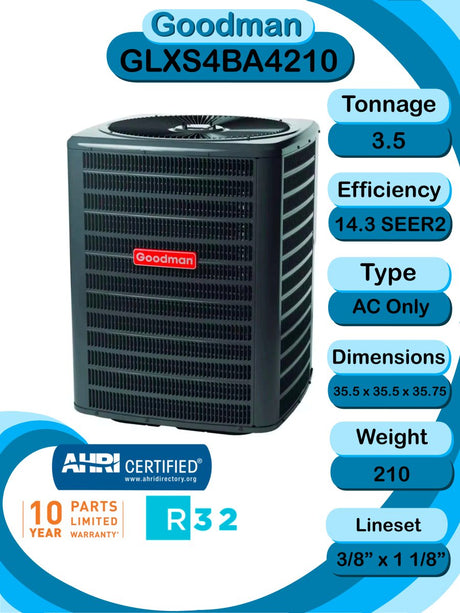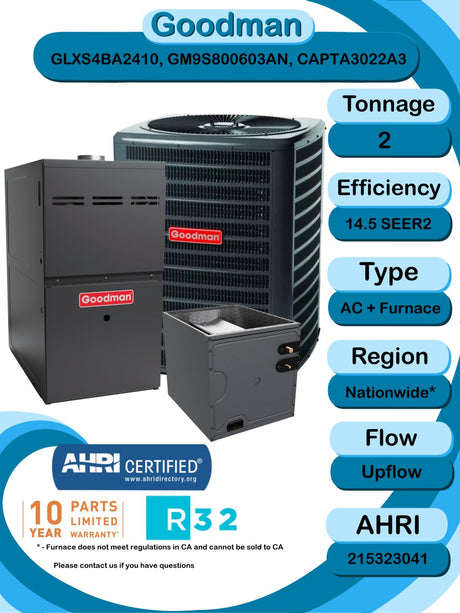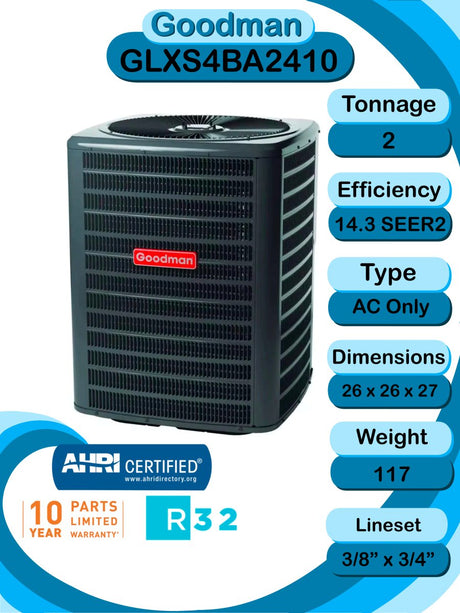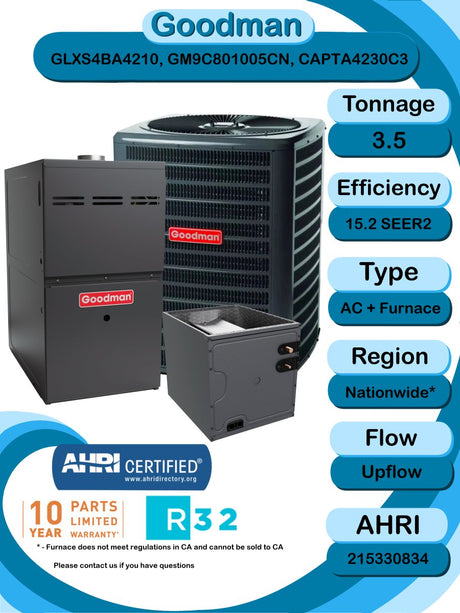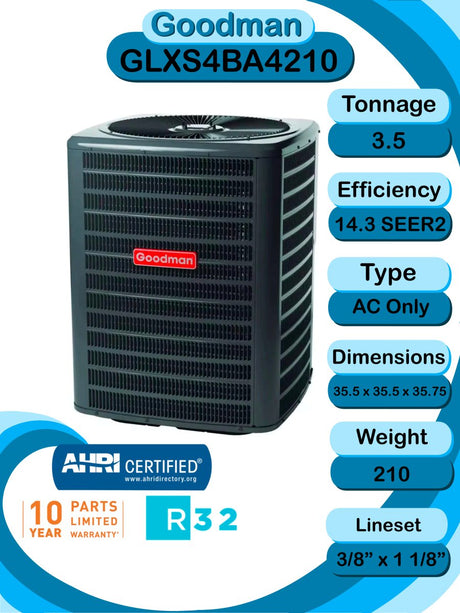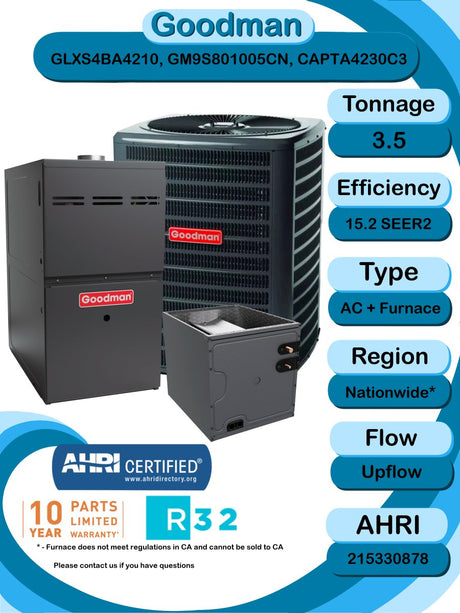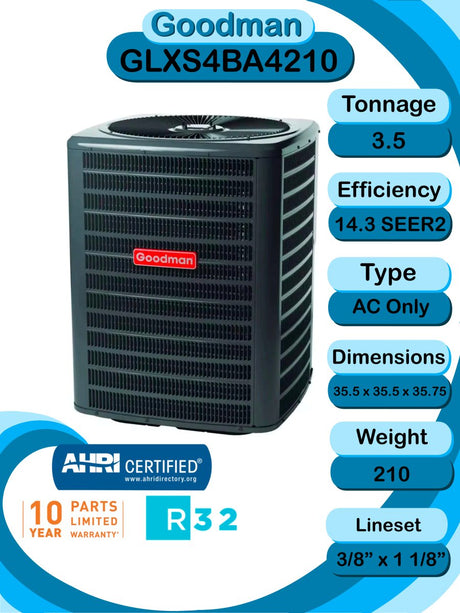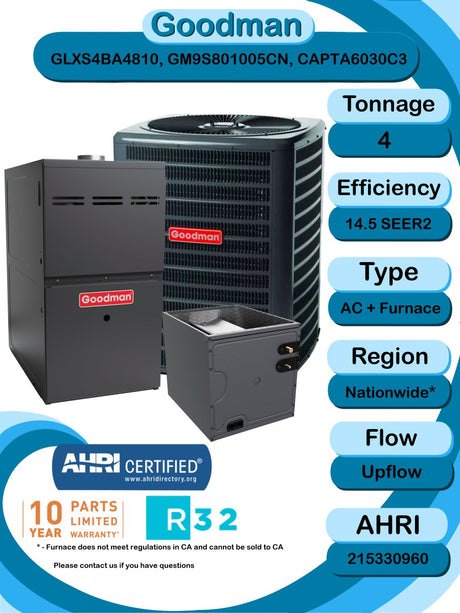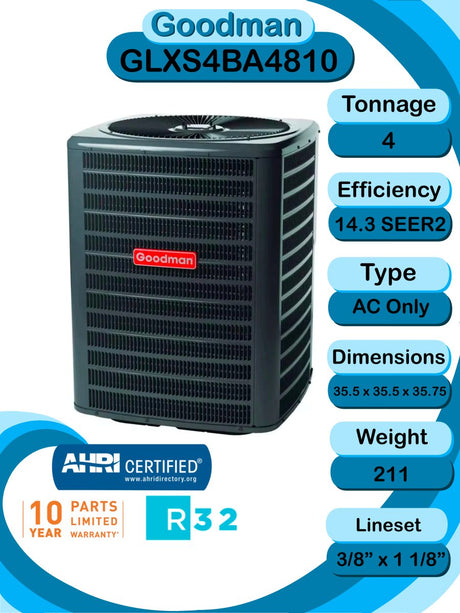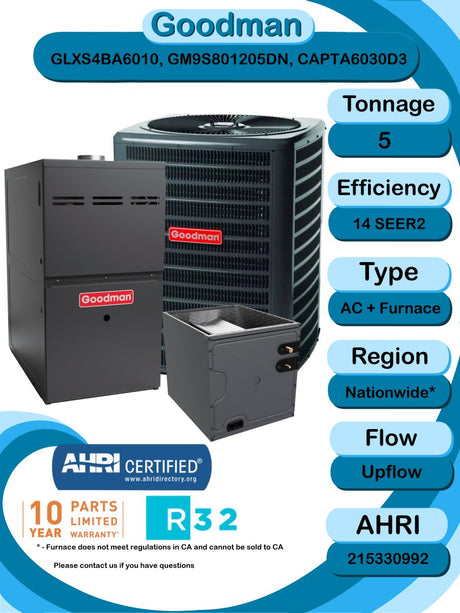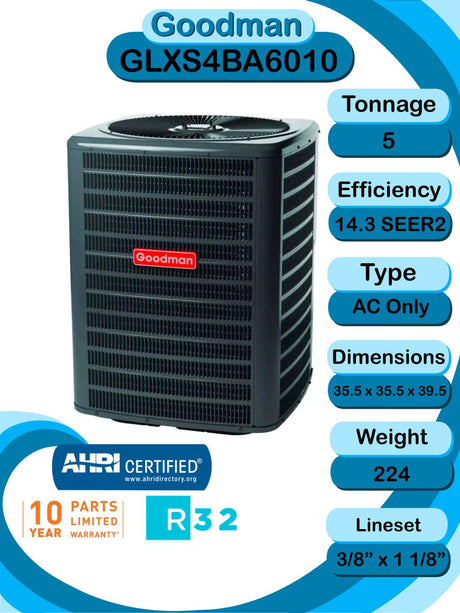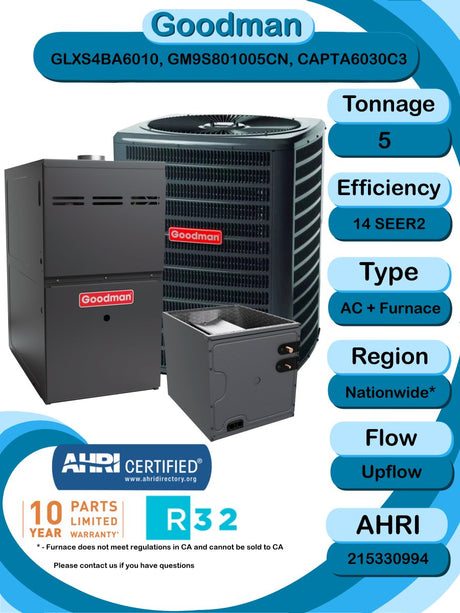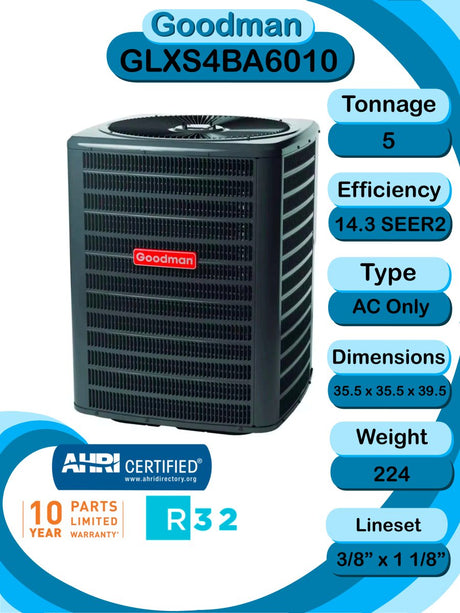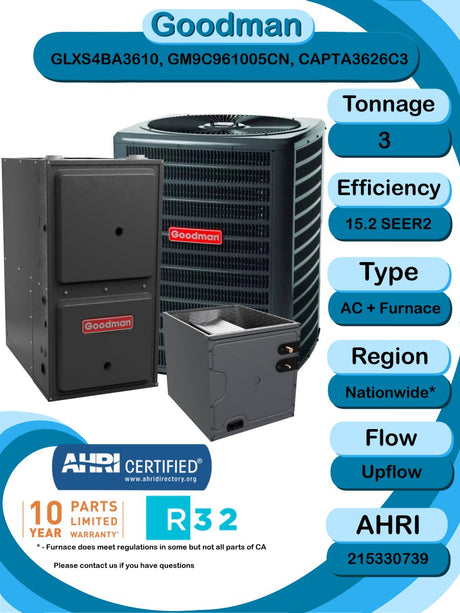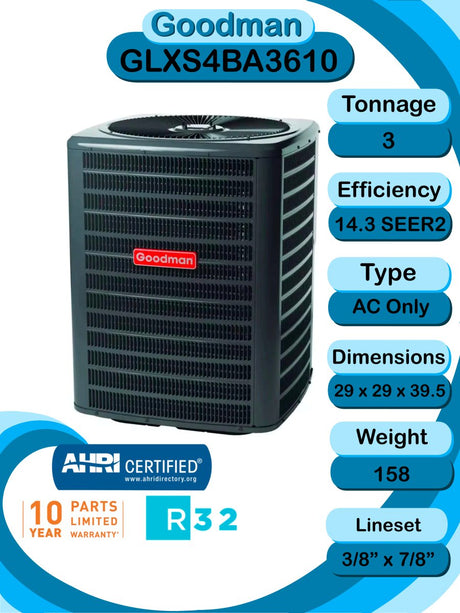- Best selling
- Alphabetically, A-Z
- Alphabetically, Z-A
- Price, low to high
- Price, high to low
- Date, old to new
- Date, new to old
FiltersFilter & Sort
Clean Comfort
Clean Comfort Whole Home Dehumidifier DV065
50.0 lb
$1,600.00Unit price /Unavailable
Featured Collection - Goodman Best Sellers
View all-
Goodman
$4,631.00Unit price /Unavailable -
Goodman
$3,795.00Unit price /Unavailable -
Goodman
$4,885.00Unit price /Unavailable -
Goodman
$4,740.00Unit price /Unavailable -
Goodman
$5,067.00Unit price /Unavailable -
Goodman
$5,657.00Unit price /Unavailable -
Goodman
$5,449.00Unit price /Unavailable -
Goodman
$5,423.00Unit price /Unavailable

